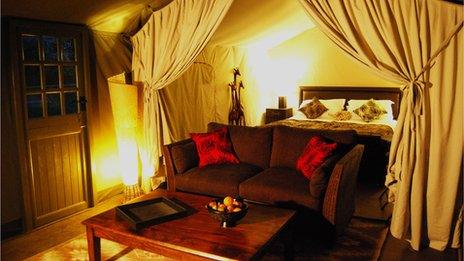Glamping in Snowdonia stifled by planning rules, councillor claims
- Published
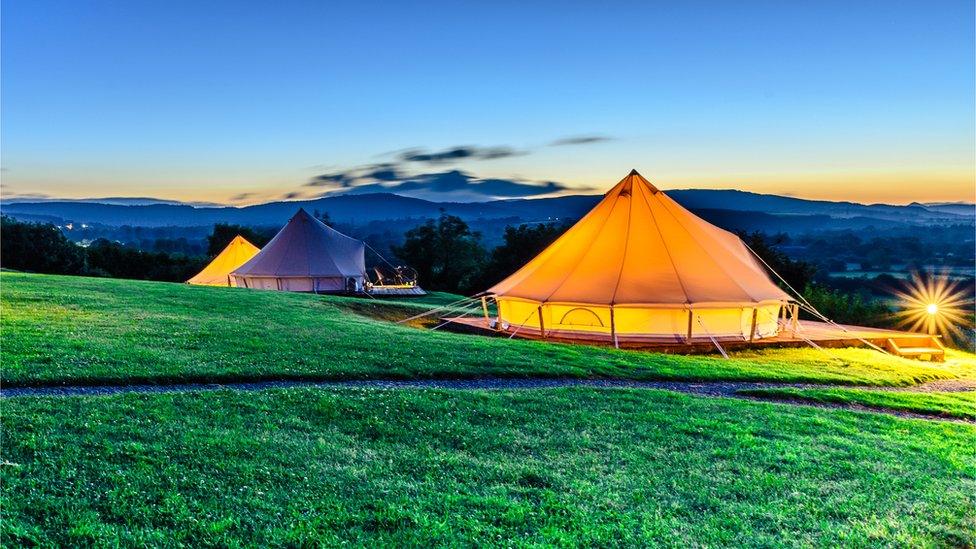
Glamping - luxury camping - has been offered by farmers and rural landowners seeking new sources of income
A national park must be "more ambitious" over luxury camping for rich tourists, a councillor argues.
Snowdonia will lose out if it sticks to new guidelines promoting "small scale" and "back to nature" sites and not "glamping", John Pughe Roberts says.
He said "cheap and cheerful" units with shared toilet and shower blocks would not satisfy people with money to spend.
Park bosses said they struck the "right balance" between supporting the rural economy while protecting the landscape.
"Glamping" is increasingly on offer across rural Wales as landowners seek new sources of income.
But Mr Roberts, a Gwynedd councillor who sits on the Snowdonia National Park Authority (SNPA), claims its new guidelines would "stifle" operators hoping to develop higher-end sites.
'Basic' facilities
The guidelines stress accommodation within the park should be "very much on small scale and 'back to nature' type developments" where environmental and visual impacts are "kept to an absolute minimum".
Individual accommodation units should be of a "modest size" and "should provide only the most basic of facilities", and self-contained units with toilets and showers will "not generally be supported".
Visit Wales Gold Award standards insist on criteria including access to private bathrooms and the quality of the beds.
Mr Roberts, who represents Corris and Mawddwy, told members at a recent meeting that "cheap and cheerful doesn't pay", adding: "We want people of quality that will spend money."
He told the Local Democracy Reporting Service he had concerns about how much the local economy mattered to the park authority.
"We are in a time of much change within agriculture and the rural economy, but I don't want to see young people who are trying to diversify end up disadvantaged," he said.
An SNPA spokesman said the authority believed its planning guidance provided "the right balance between providing high quality visitor accommodation, supporting the rural economy whilst still fulfilling the statutory purpose of protecting and enhancing the landscape, biodiversity and cultural heritage".
- Published27 January 2020

- Published24 May 2017
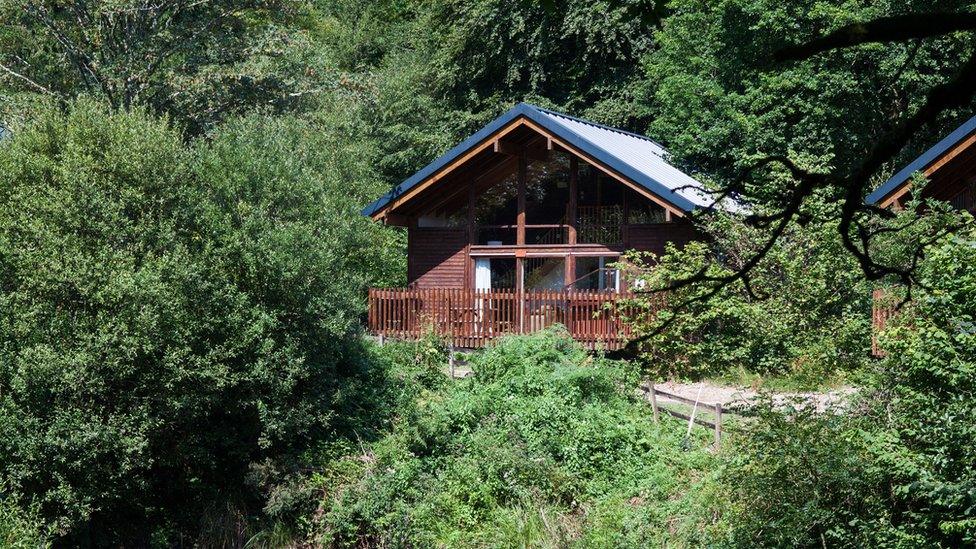
- Published8 December 2016
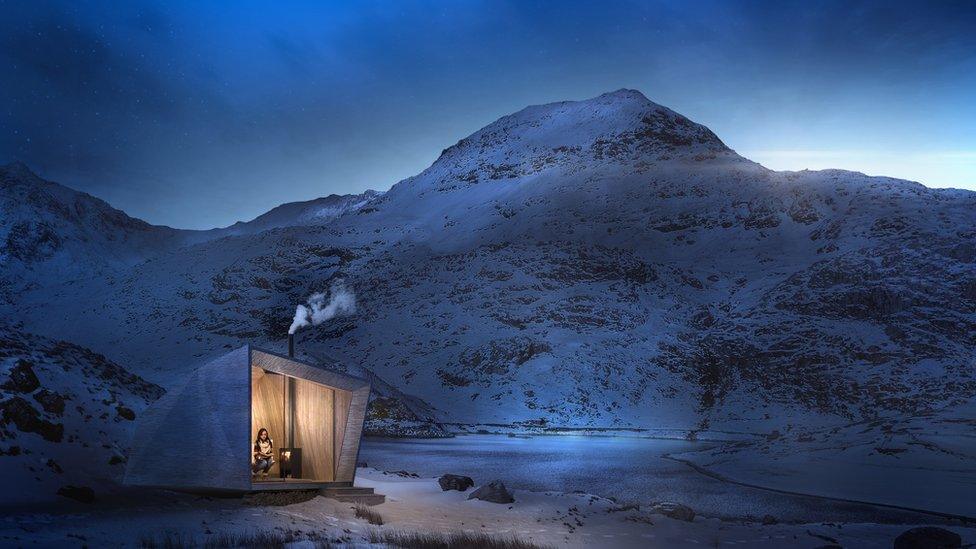
- Published4 December 2015
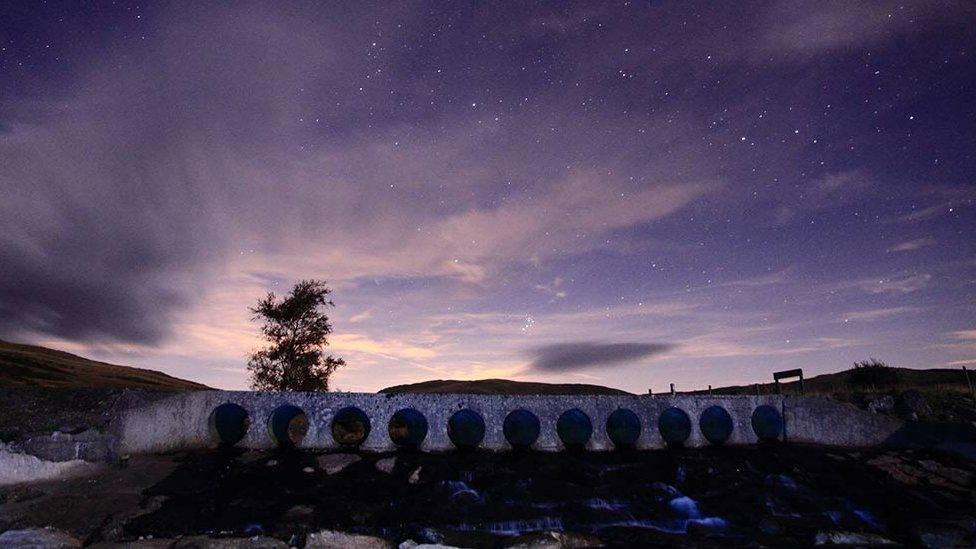
- Published23 January 2013
